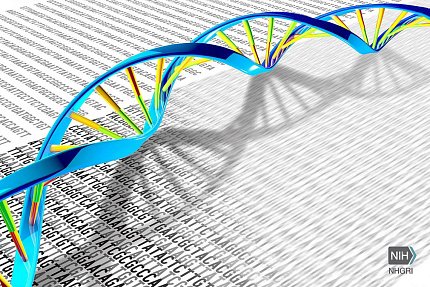Gene Therapy Restores Immune Function in Children with Rare Disorder

Photo: Darryl Leja, NHGRI
An investigational gene therapy can safely restore the immune systems of infants and children who have a rare, life-threatening inherited immunodeficiency disorder, according to a study funded in part by NIAID, NHLBI and NHGRI.
The researchers found that 48 of 50 children who received the gene therapy retained their replenished immune system function 2 to 3 years later and did not require additional treatments for their condition, known as severe combined immunodeficiency due to adenosine deaminase deficiency, or ADA-SCID. The findings were published in the New England Journal of Medicine.
ADA-SCID, which occurs in approximately 1 in 200,000 to 1 million newborns worldwide, is caused by mutations in the ADA gene that impair the activity of the adenosine deaminase enzyme needed for healthy immune system function. This impairment leaves children with the condition highly susceptible to severe infections. If untreated, the disease is fatal, usually within the first 2 years of life.
A potential treatment option for infants and older children with ADA-SCID, “gene therapy is a one-time procedure that offers patients the hope of developing a completely functional immune system and the chance to live a full, healthy life,” said NIAID director Dr. Anthony Fauci.
People with ADA-SCID can be treated with enzyme replacement therapy, but this treatment does not fully reconstitute immune function and must be taken for life, usually once or twice weekly. Transplants of blood-forming stem cells, ideally from a genetically matched sibling donor, can provide a more lasting solution. However, transplants carry risks and most people lack such a donor.
The new research evaluated an experimental lentiviral gene therapy designed to be safer and more effective than previously tested gene-therapy strategies for ADA-SCID. This gene therapy, developed by researchers from UCLA and Great Ormond Street Hospital in London, involves inserting a normal copy of the ADA gene into the patient’s own blood-forming stem cells.
The results come from 3 separate phase 1/2 clinical trials, 2 conducted in the U.S. and 1 in the U.K. The 50 children with ADA-SCID enrolled in the 3 studies ranged in age from 4 months to 16 years old. Most participants acquired and retained robust immune function following gene therapy—96.7 percent after 2 years in the U.S. studies and 95 percent after 3 years in the U.K. study—and were able to stop enzyme replacement therapy and other medications.
The lentiviral gene therapy appeared safe overall, although all participants experienced some mild to moderate side effects, mainly attributable to the chemotherapy the participants received during the procedure.
